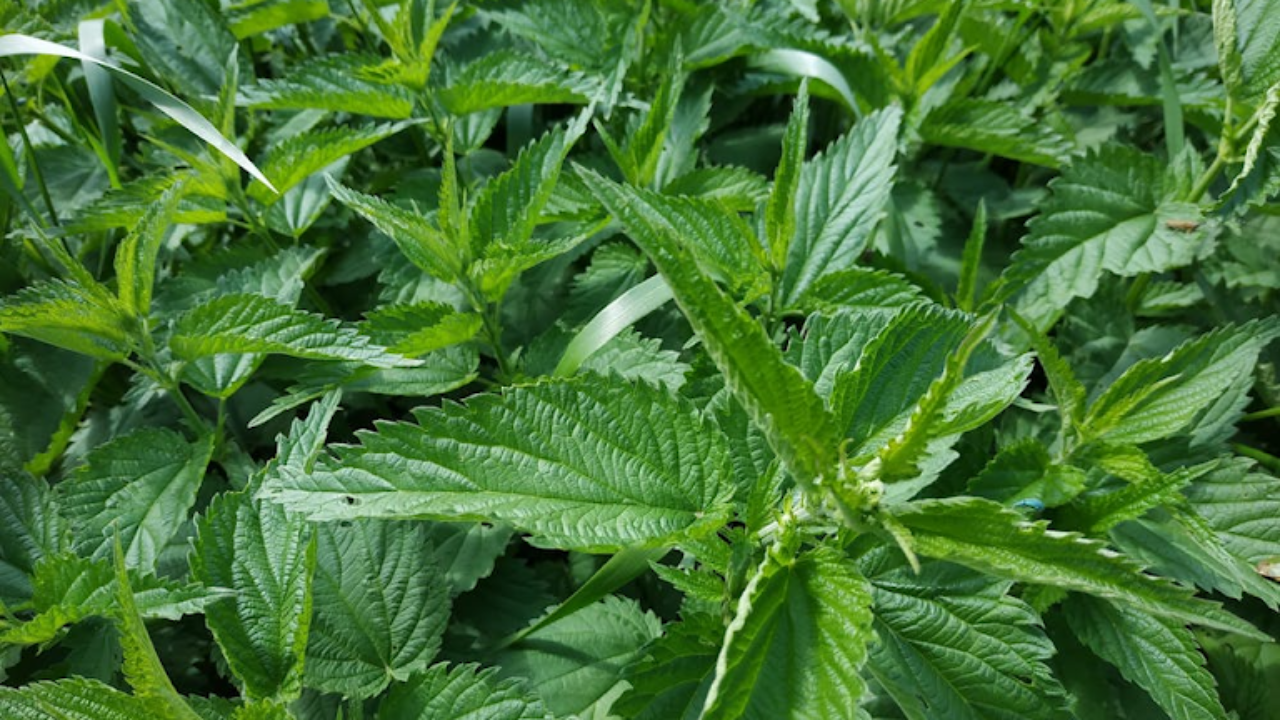Diabetes Dietitian's Take on Stinging Nettle

Living with diabetes, whether it's type 1 or type 2, can feel like a constant balancing act.
You're always on the lookout for ways to manage your blood sugar, and you've probably heard about a ton of different supplements and "natural" remedies. One that's been gaining some attention is stinging nettle. Stinging nettle might not be the first thing that comes to mind when managing diabetes, but it's starting to gain attention in the world of natural remedies. Let's break down what the science says in a way that’s easy to understand. As a diabetes dietitian and Diabetes Educator, my goal is to give you the facts so you can make smart, informed choices.
Science Behind Stinging Nettle and Blood Sugar
Stinging nettle has been used for a long time for various health issues, from reducing inflammation and lowering blood pressure to helping with seasonal allergies. But when it comes to blood sugar, the jury is still out. Let's look at a few of the studies that have been done.
One study looked at a group of kids living with type 1 diabetes (T1D) who weren't seeing great blood sugar control. One group was given stinging nettle, and the other wasn't. What's interesting is that the kids who took the stinging nettle needed less insulin, but their overall blood sugar control wasn't significantly better than the other group. So, while it might have helped them use less insulin, it didn't completely solve their blood sugar challenges. This is where working with a T1D dietitian who specializes in T1D meal planning becomes so crucial they can help you fine-tune your insulin needs and carb intake.
Another study focused on a group of people with type 2 diabetes (T2D). In this case, the group that took stinging nettle saw some promising improvements. They had better fasting blood sugar levels and lower triglycerides, which are a type of fat in your blood. This is a big deal because managing both blood sugar and cholesterol is a key part of living well with T2D. A dedicated type 2 diabetes dietitian can help you with a comprehensive plan that includes both nutrition and lifestyle changes.
Perhaps the most fascinating piece of evidence is a case report about one individual with T2D. This person was taking both metformin (a common diabetes medication) and stinging nettle. What they did was pretty bold: they stopped taking their metformin but continued with the stinging nettle. Their blood sugars stayed totally fine! It was only when they stopped taking the stinging nettle as well that their blood sugars went back up. The theory here is that stinging nettle might mimic the effects of certain type 2 diabetes drugs, potentially improving insulin sensitivity.
Role of Your Dietitian in Supplement Decisions
So, what's the bottom line? Could stinging nettle help? Potentially. Is it guaranteed to help your blood sugar? Not necessarily. The research is still in its early stages, and what works for one person might not work for another. The best approach is always to work with your healthcare team. Before you add any new supplement to your routine, whether it's stinging nettle or something else, talk with your doctor and a diabetes dietitian. A professional can help you understand the risks and benefits and make sure it doesn't interfere with your current medications or health plan.
If you've tried stinging nettle yourself, we'd love to hear about your experience. Sharing your story can help others on a similar path. Remember, managing diabetes is a marathon, not a sprint, and having the right support, from your care team to a specialized diabetes dietitian, can make all the difference.
Ask the Dietitian
Q1: Will stinging nettle help my blood sugar?
Maybe, but it's not a sure thing. Some studies show promising results for people with type 2 diabetes (T2D), with improvements in fasting blood sugar and triglycerides. The theory is that it could improve insulin sensitivity. For people with type 1 diabetes (T1D), one study found it helped reduce insulin needs, but didn't dramatically improve overall control. The research is still early.
Q2: Is it safe to take?
This is the most important part. Stinging nettle can interact with your medications, especially insulin or metformin, potentially causing low blood sugar. Before you try it, you must talk to your doctor and your diabetes dietitian.
Q3: How do you, as a dietitian, use it in a plan?
The priority is always your safety. If a client, whether they have type 1 diabetes or type 2 diabetes, is interested, we would monitor their blood sugar very carefully. The most effective strategies for managing diabetes come from a solid, personalized nutrition plan created with a T1D dietitian or T2D dietitian, not from a single supplement.
Feeling stuck on what to do when your blood sugar is high? This checklist gives you simple, actionable steps. Created by a diabetes dietitian and Diabetes Educator, it’s your go-to guide for taking back control of your numbers.

